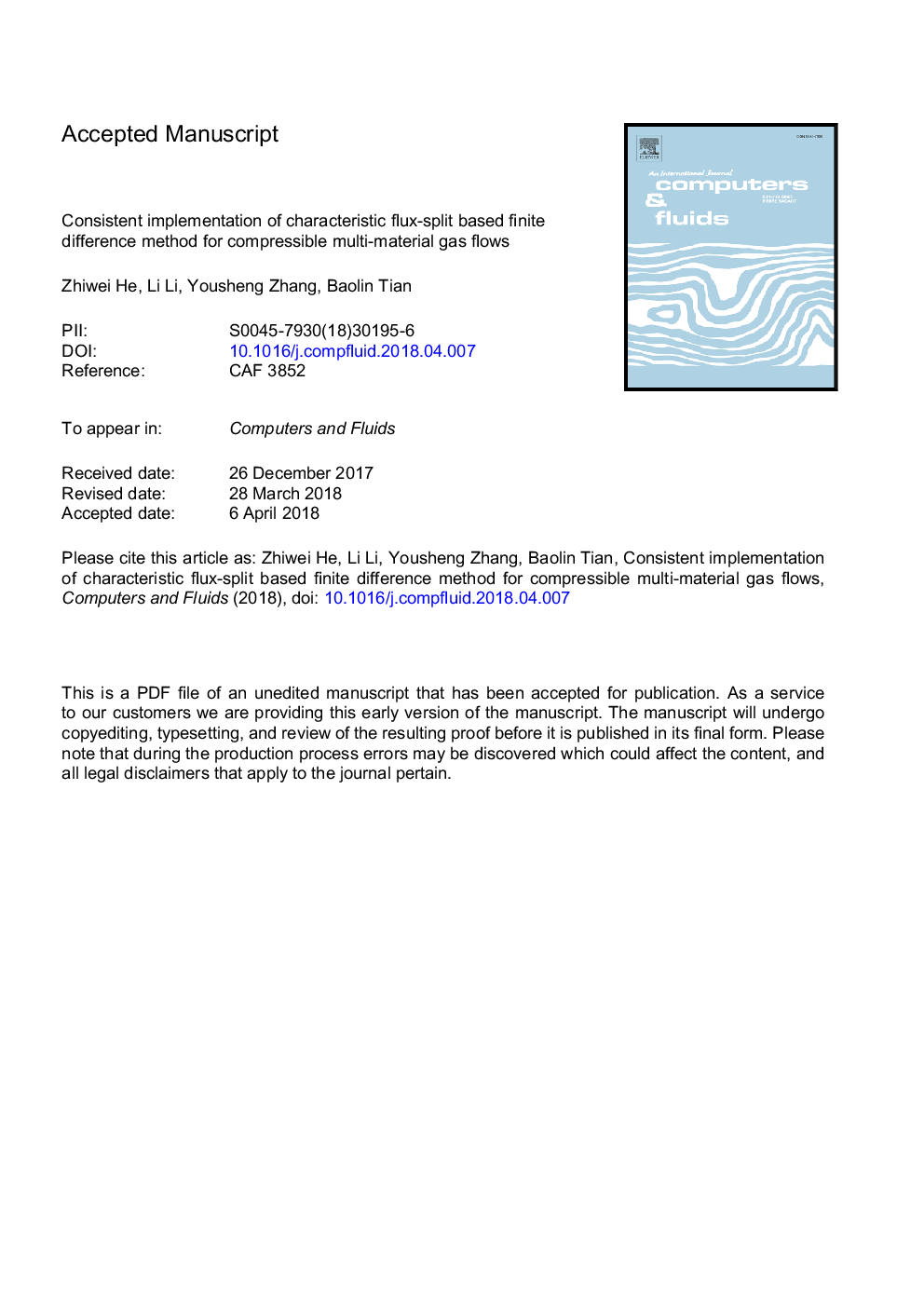| Article ID | Journal | Published Year | Pages | File Type |
|---|---|---|---|---|
| 7156171 | Computers & Fluids | 2018 | 28 Pages |
Abstract
In order to present velocity and pressure spikes at material discontinuities occurring when the interface-capturing schemes inconsistently simulate compressible multi-material gas flows (when the specific heats ratio is variable), a quasi-conservative numerical model has been proposed. However, designing a consistent numerical algorithm, especially using the high-order characteristic flux-split based finite-difference method (CFS-FDM) for this model, is still an open question. In this study, a systematical analysis of previous algorithms of the consistent implementation of the high-order CFS-FDM for such flows is performed, and reasons of special treatments in these algorithms are revealed. Based on this analysis, a new general numerical methodology that successfully avoids any special treatments as those required in previously reported algorithms, is derived. In this new algorithm, we rewrite the non-conservative term as a conservative term with a source term containing the velocity divergence. By consistently treating the advection velocity in the conservative term and the velocity divergence in the source term by imposing a new additional criterion, specifically, that a multicomponent-fluid algorithm should have the ability of maintaining a pure single-fluid, we finally derive a new general algorithm that does not need any special treatment, and is very convenient to implement. The results of some benchmark tests show that the final algorithm not only maintains the velocity and pressure equilibria, but is also suitable for problems regarding the interaction of interfaces and strong shock and rarefaction waves.
Related Topics
Physical Sciences and Engineering
Engineering
Computational Mechanics
Authors
Zhiwei He, Li Li, Yousheng Zhang, Baolin Tian,
